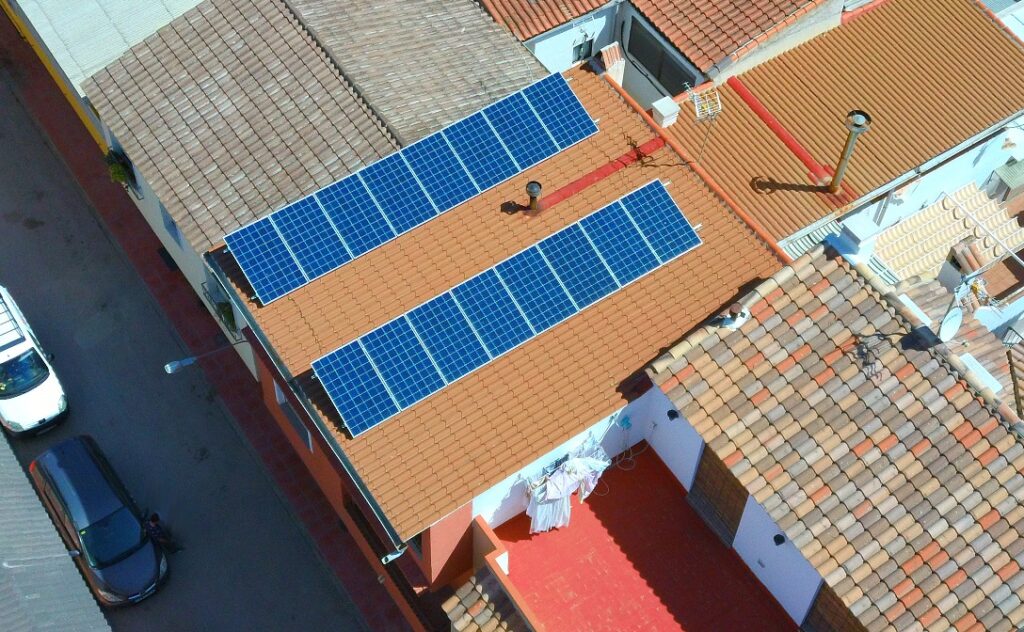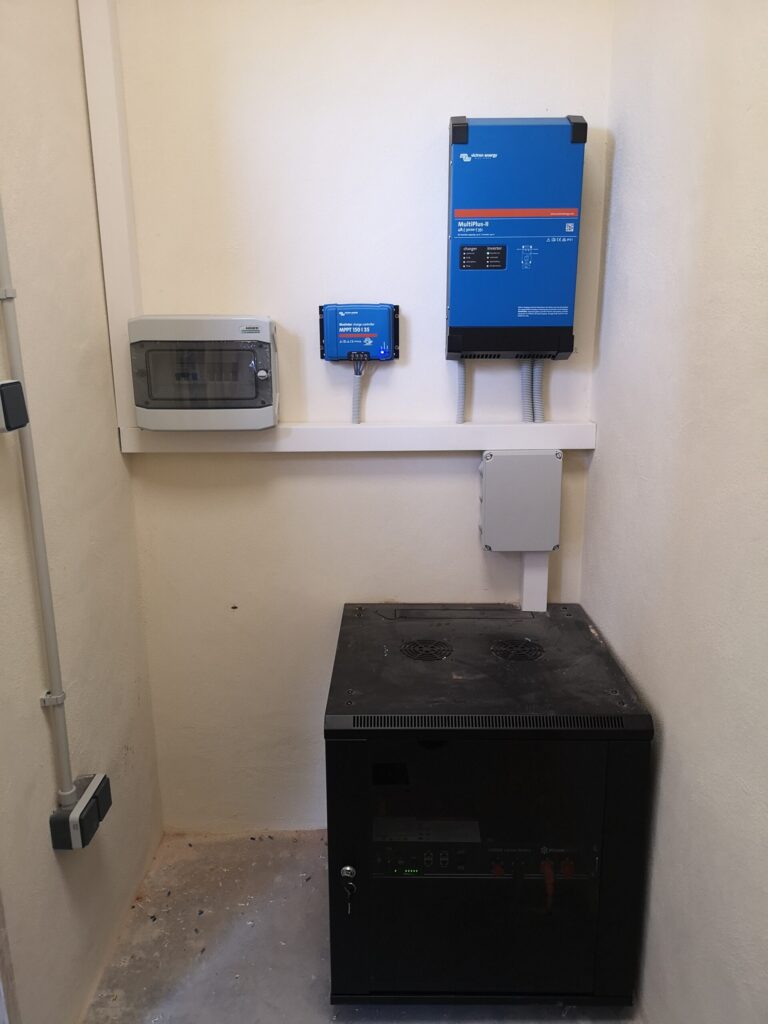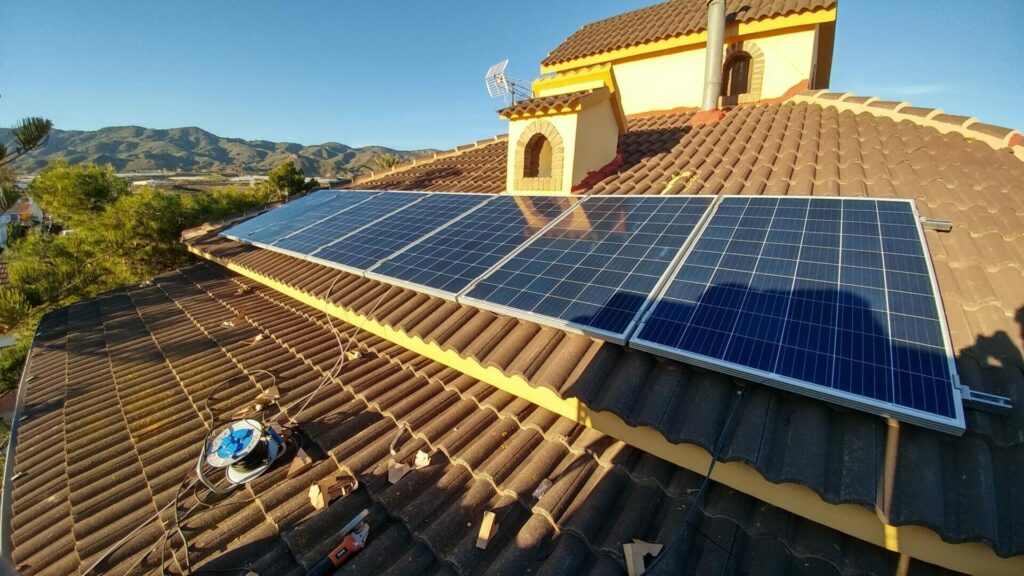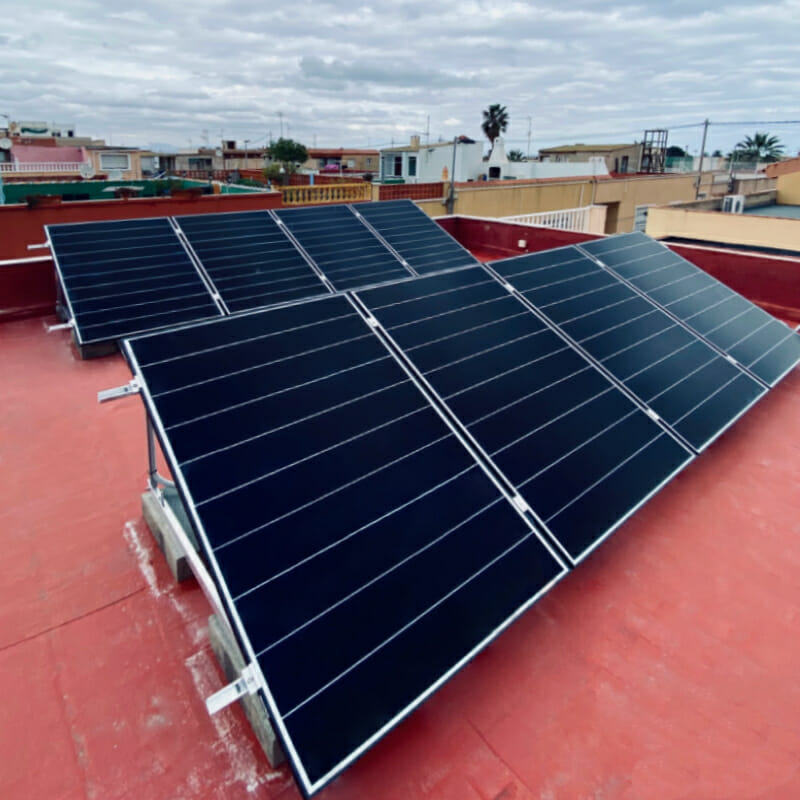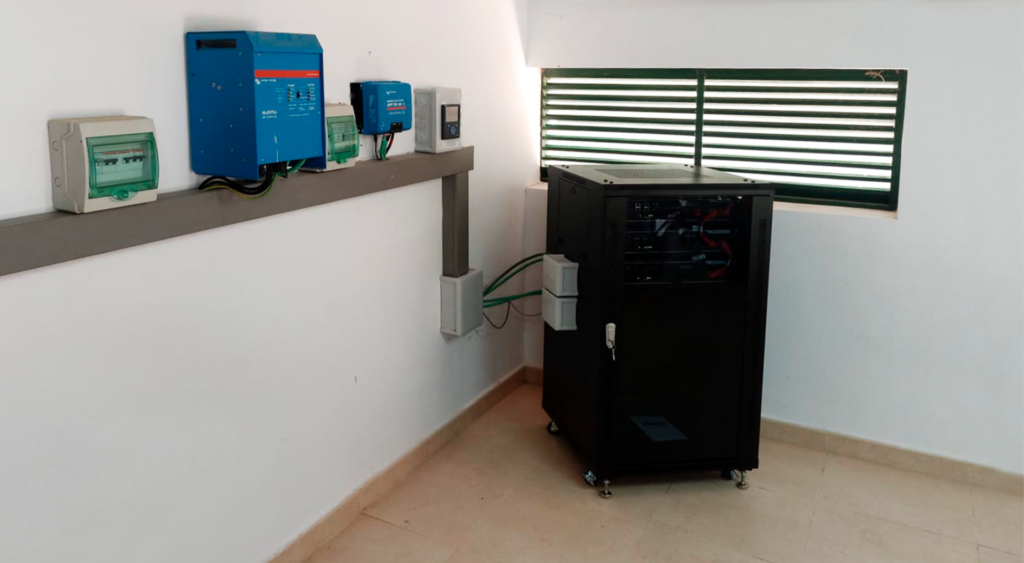Replacement of lead acid batteries with Pylontech US2000C 48V 2.4kWh lithium batteries.
Repair - replacement of lead batteries with lithium batteries.
Batteries are a fundamental part of any self-consumption photovoltaic installation. Thanks to the energy accumulated in them, we can increase our independence from the grid for more hours a day. With batteries we can have the electricity we have been generating even late at night, when the panels have stopped producing energy, without having to depend on the electricity grid and its prices. Traditionally, lead-acid batteries were installed to accumulate the photovoltaic energy but, little by little and as technology has advanced, these batteries have been replaced by lithium batteriesas the Pylontech US2000C 48VThe new, much safer, more compact and more durable.
Our customer had an outdated, bulky and inefficient bank of OPzS lead-acid cup batteries. These batteries were taking up a lot of space in the basement and, after a few years of use, were at the end of their useful life. So he started looking for options and found the best alternative in the Pylontech US2000C 48V 2.4kWh batteries.
While replacing a lead-acid battery bank with a lithium battery may seem like a simple task, it is actually a process that requires very specific technical knowledge and skills. It is often thought to be as simple as connecting the batteries to the inverter and that's it, but it is essential to follow the proper steps in order for everything to work safely. It is necessary to design the system correctly, connect all the components and, above all, configure the inverter to the correct voltages for the new batteries to avoid possible damage to the equipment. An incorrectly configured inverter-charger can end up generating a failure of lithium batteries connected to them, rendering them unusable shortly after they are installed. This is a common mistake that is very costly and is not covered by any manufacturer's warranty.
Replacement of lead batteries with Pylontech US2000C 48V 2.4kWh lithium batteries in pictures:
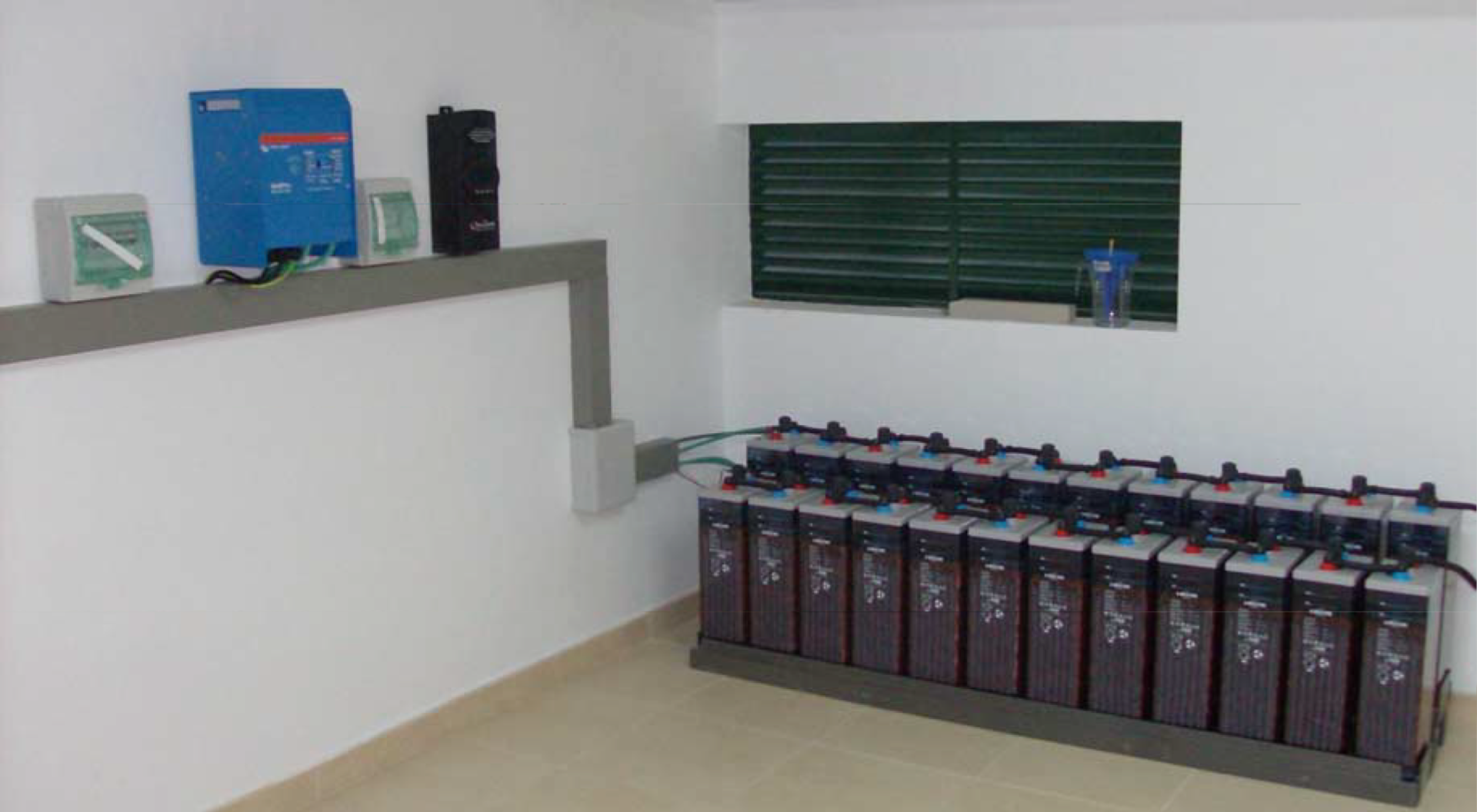
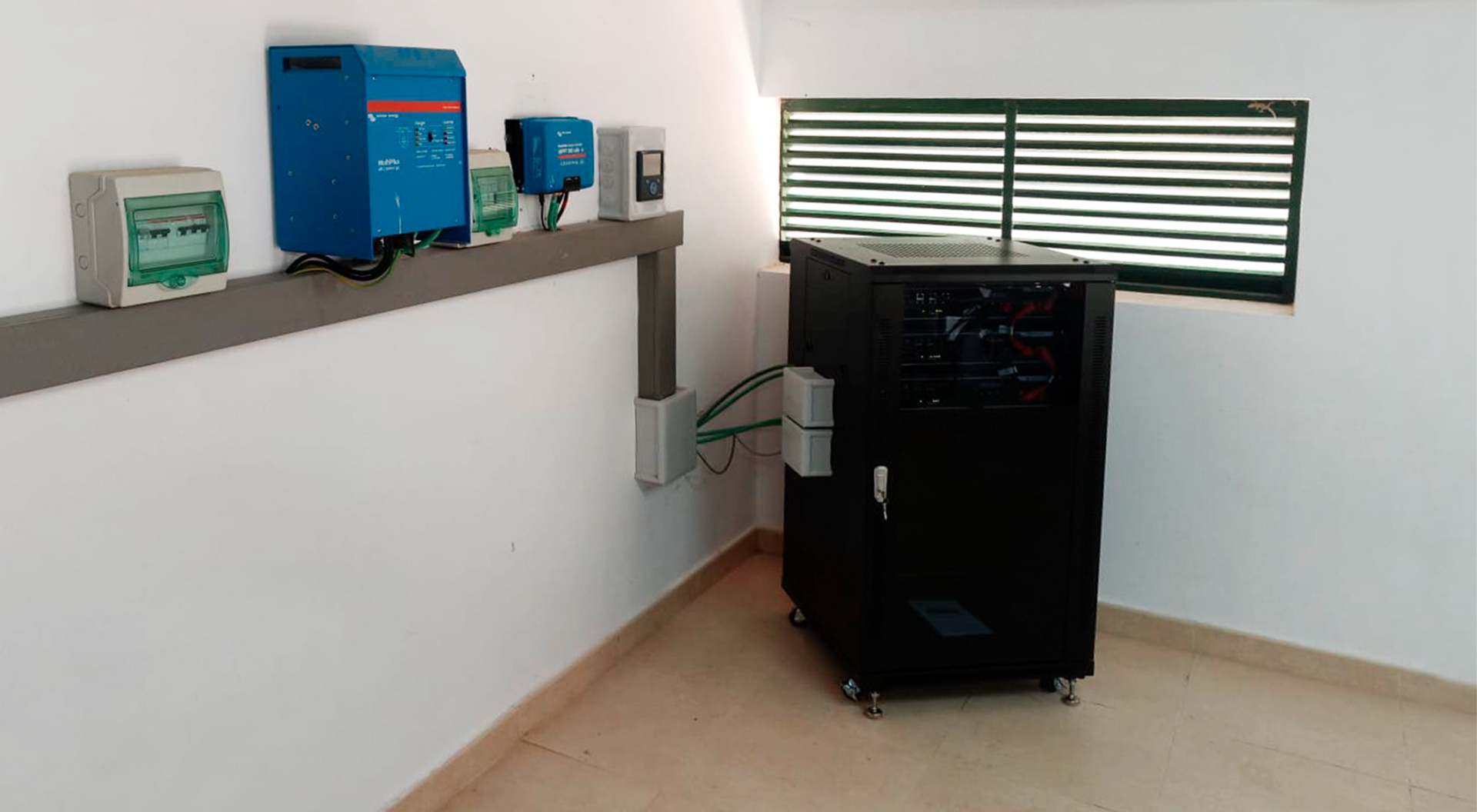
Lead acid vs. lithium batteries Pylontech US2000C 48V 2.4kWh lithium batteries
The first difference between lead-acid and lithium batteries is obvious: size. Lead-acid batteries of the same capacity as lithium batteries take up more than three times as much space and weigh ten times as much.
What are the advantages of the Pylontech US2000C lithium batteries?
The advantages of lithium are many: higher capacity, higher energy density, lower weight and volume, longer lifetime, short charging times, maintenance-free.
Although the price of these batteries is still higher than lead-acid batteries, so are the range of features they offer.
Advantages
| Lead batteries | Pylontech US2000C 48V 2,4kWh Lithium Batteries |
|---|---|
| Widely tested and accepted technology | High energy density |
| Easy to recycle | High efficiency |
| Lower price | Short loading periods |
| Intermediate loading possible | |
| Long service life (up to 6000 charge/discharge cycles) | |
| Maintenance-free | |
| Lightweight and compact |
Disadvantages
| Lead batteries | Lithium Batteries: Pylontech US2000C 48V of 204kWh |
|---|---|
| High weight | Requires BMS (Control Electronics) |
| High volume | Higher price |
| Long loading periods | |
| Limited depth of discharge | |
| Short lifetime (1200 cycles) | |
| Yes, they need maintenance |
Are you interested in replacing the lead batteries in your installation with lithium batteries such as the Pylontech US2000C 48V 2.4kWh?
Now is the time! The Subsidies for solar panels in Murcia 2023 The government's subsidies remain in place until the end of 2023 and subsidise up to €490 per kWh of installed battery capacity, which is up to 65% of the total cost of the storage installation.
If you have in mind to change your batteries like our customer from Cartagena (Murcia), but you have doubts about how to do it, please contact us. contact and we will be happy to guide you through the whole process.
If you already know that you want to install batteries, ask us for a no obligation quotation. We are expert installers with years of experience and official service of trusted brands such as Fronius y Victron.

